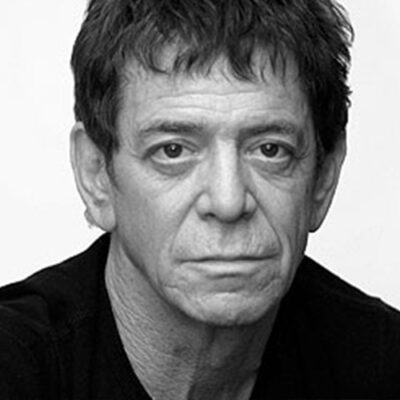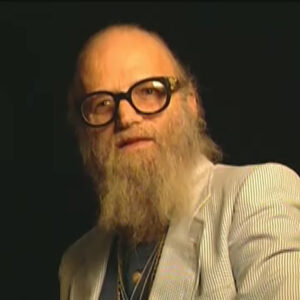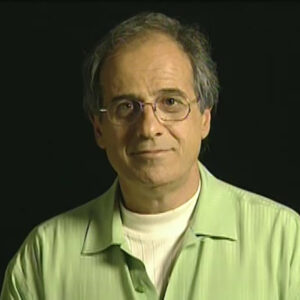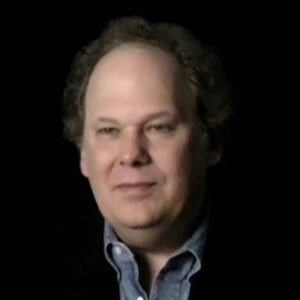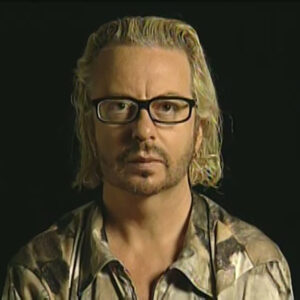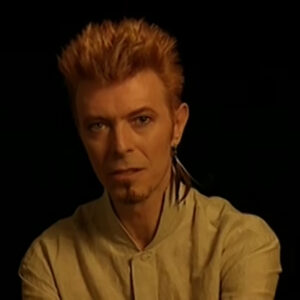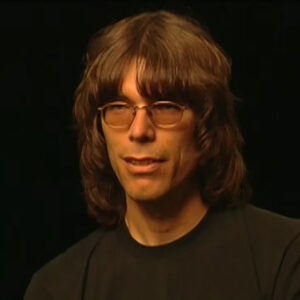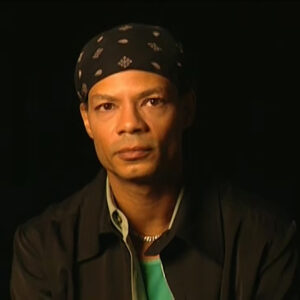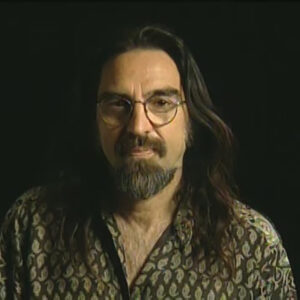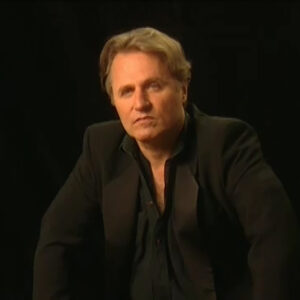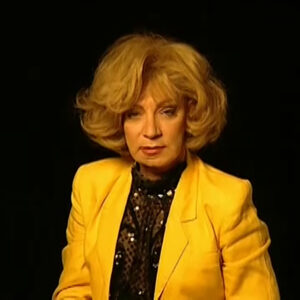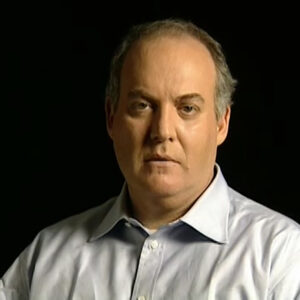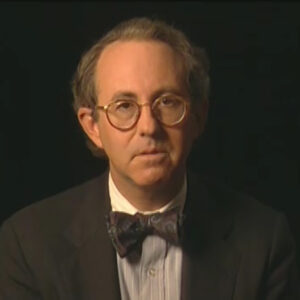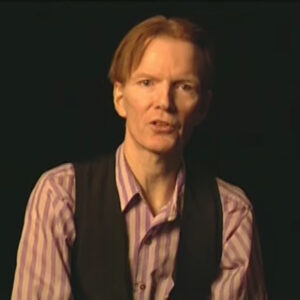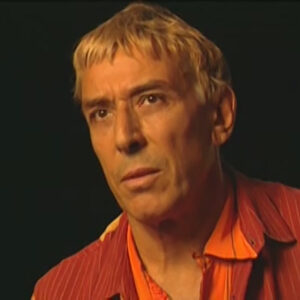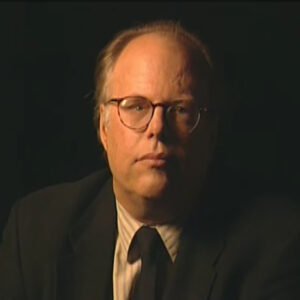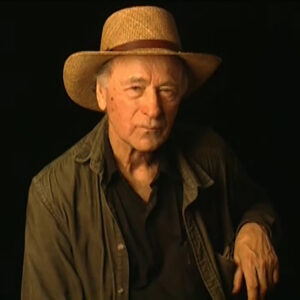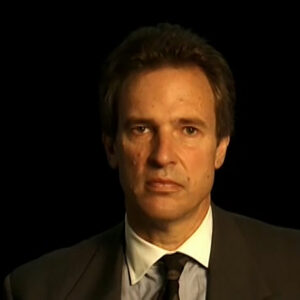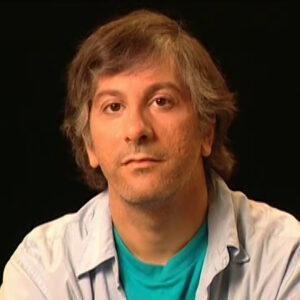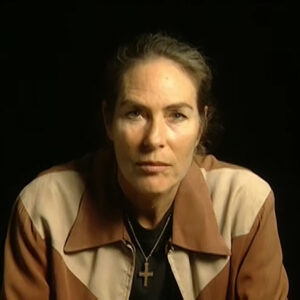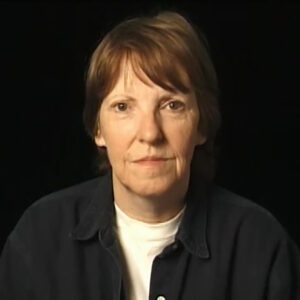Speaker I found myself in Lou Reed’s company one evening, I had been invited to a some sort of arts festival in this little medieval town north of Venice. And my wife and I came down for dinner one night stupidly thinking that in Italy, when you’re invited for dinner at 7:00, you should be there at seven instead of midnight or 130 in the morning. And there was Lou Reed in the lobby of this hotel, and it was quite remarkable. It was quite remarkable just to be in Venice. I mean, for a Jersey boy like me to be somewhere else in the world, you know, because of this crazy writing, I do. But to be in Venice and have Lou Reed about to join us for dinner is quite incredible. And it all got increasingly incredible because a day later, I’m on a gondola coursing through these dreamlike canals in Venice with Lou Reed and my wife, Mercedes and Jay MacInerney and a couple of other people. It really gives you this great notion of the possibilities in life. And, you know, so the whole the whole time there was quite magical. I’m in Venice is really a place that we’ve dreamed of somehow, that we know what Venice looks like even before we’re there. And it was also an incredible experience being on these little panels or doing readings with Lou and seeing the way people responded to us. I mean, we had this crazy experience at a bookstore one night. I think Lou had just gotten into Venice that night. And we’re sitting up there with this eminent critic in Italy named Fernanda Pavano or Nundah as her nickname is. And so Jay MacInerney, myself, Lou Reed and Fernanda and Fernando procedes to start this thing. First of all, it’s a packed bookstore. Much more people than I think you usually get in this country to come to a bookstore to see people. But, you know, Lou was there. I don’t know if that was scheduled or not. But there were just a throng of people there, many of whom didn’t. I have a feeling I didn’t speak English, which doesn’t seem to bother Italians. They respond with this effusive adoration, no matter what you say to them. So we’re sitting there and then Fernando proceeds to read in Italian these lengthy.
Speaker Papers she had written about MacInerney and then one about me and which were it’s hard to sit in front of people while someone reads about you in another language. I don’t know. I usually like to know what’s being said about me when I’m in front of one hundred people in there understanding it. And then there were a whole bunch of crazy, incredibly crazy questions to all of us about rock and roll, about the effect of rock n roll on on writing and about some that some of which seemed sort of hostile because we didn’t quite understand them, most of which were, you know, adoring.
Speaker None of which had anything to do with each other. None of which had anything to do with our responses, because I don’t think they understood what the responses were. There was no notion of who should answer which, who, which question or, you know, who whom the questions were being directed to.
Speaker So it was this anarchy, this great anarchy suddenly one night in a town north of Venice with with Lou Reed. So. Great night.
Speaker Perfect, perfect, perfect. Stop for a second. Exactly. Good. Do I need to go back over anybody’s. How are we rolling? So let’s go back to that conference and talk a little bit about.
Speaker Maybe how you see Luis riding and its effect on.
Speaker Your generation, right? Yeah.
Speaker I think the most important effect Lou Reed has had on me as a writer and I think on other writers and I think on other people who have artistic aspirations, I think the most important thing is. To some degree, the subject matter of the songs. I mean, well, I think all of rock and roll is basically a kind of. Recycling. I mean, it’s a real kind of folk music that’s recycled pop songs, and I remember Lou even talking about joking about the three chords he knows. I mean, but I think the critical thing about looted is that he chose to write about people. He was intimate with people in his social circle, friends of his, who at the time were on relatively unknown. I mean, all these people became known either through the songs or things that happened at the factory or what was going on at the time. But the impulse I’m certain he had was to write about people he encountered in his life and people he was close to. That’s an incredible thing for a young person to encounter in the arts, because we’re brought up in this country, in this country, most of us sit on the couch and we watch a television screen. Behind that screen are the famous people in the August personages. And somehow behind that proscenium are the important things. And the rest of us are left thinking, well, we’re not worthy of being valid subject matter for any sort of novel or short story or song or movie. We just don’t there’s not enough August material in our lives, you know.
Speaker And, Lou.
Speaker Very explicitly challenge that whole notion of what celebrity, what the magic of celebrity is in this country and made I think a lot of people realize that we can make mythologies out of our own lives and out of the lives of people whom we know. And it’s an incredibly liberating thing to a kid. And it’s it’s I used to have a similar notion when I was growing up, just because I want.
Speaker I was so in love with rock and roll, I’d read, for instance, Rolling Stone interviews of Peter Townsend and Keith Richards and whatnot.
Speaker And I’d and I used to have this idea that it would be great just to do these very long and involve precise, intimate interviews with just people. My aunt, my grandmother, you know, in the way that they did this Rolling Stone, if you like. What were you thinking in 1958? You know, when you bought those chintz those ugly chintz things on the couch over there? I mean, what what statement were you trying to make?
Speaker Because I love that kind of the kind of attention, that kind of spotlight that in this culture we we throw on people whom we think are important. This is the great thing about Lou’s song. So that kind of attention and that kind of sort of lyrical love was thrown on just people who he happened to encounter and who became involved in his life. And it’s become that notion. I don’t know if it was completely from Lou Reed that that I took this, but it’s become a very important thing in my own work as a writer. And I use people in my family and I use, you know, people I encounter and try to elevate them in this crazy, you know, using the crazy kind of mythologies that we’ve created for celebrities. But that to me, and it continues to be the most beautiful thing about Lou Reed’s whole, you know, whole art is to aggrandize and glorify and mythologize. People that he encounters because it teaches us that our own friends and people in our own family, if they’re given the kind of graceful treatment that Lou gives to people, are as utterly fascinating and utterly bizarre and broke as anything you could you could cook up in more traditional ways that, you know, we tend to glorify celebrities.
Speaker The people on the panel at the bookstore in Venice thronged anarchic bookstore were Jay MacInerney, author of Bright Lights, Big City and many books since Fernanda Pavano, who is, I think, Italy’s most eminent literary critic. And she’s a woman who knew the new Hemingway, knew the Beats, has chronicled American literature for Italians her entire life and wonderful woman full of remarkable energy at her age myself, Lou Reed, the hippest man in the world. I think it’s raining now for a number of years, several decades.
Speaker Oh, yes.
Speaker I have to. There were translators, some of whom. Some of them also, I think didn’t speak English, nor did they speak Italian. And they. There was a woman, as a matter of fact, translating one of my pieces. And she received it like two seconds before she was going to translate it.
Speaker And since my stuff is so full of American pop culture, was constantly asking my wife, you know, what’s a Quaalude, for instance, a major facet of my work, you know?
Speaker So, I mean, that translating was as as chaotic as everything else that night. It was really it was a perfect night of American literature in Italy.
Speaker Perfect. And let’s go back now to sort of lose saw a particular song. We talk about why that song is so strong for you or influenced your.
Speaker I think the song that’s most emblematic for me of Lou and continues to rouse me out of whatever doldrums I may be in is the song Rock and Roll with the lyric. My life was saved by rock and Roll. This music is so profoundly a part of who I am and so profoundly part I think of everything I’ve done in my life.
Speaker And I don’t know of another song that so simply and so eloquently talks about the redemptive power of this music and what it means. When I was 17, I was at some point it was in Greece and Crete and there was this guy we kept encountering and the guy used to greet people by saying, Lou Reed in Boston, it’s the best. That was sort of his way of sort of saying, you know, hello, come read. It’s a Lou Reed in Boston, the best and. And the album that this guy loved and I’m sure a lot of people that is. It was very perfect for Lou Reed to deliver rock and roll animal to people my age at the time they did, because somehow that persona he took on at the time, which was debauched and smart and and hip and completely adventurous and tough and and feminine and sort of gender bending everything put together. I mean, it was the package par excellence of what a kid, smart kid at that age wants out of an icon. I mean, it was perfect. It was the absolute perfect rock and roll packets. And you can’t count the number of times I listened to that album. In fact, I had a roommate in college who was a Simon and Garfunkel fan. I mean, long beyond when that was necessary. And I had my Rock and roll animal album as sort of my you know, it’s like a cross with Dracula. I mean, this was the album that eventually drove this kid to attempt suicide, actually, although it was just it was a sinus medication suicide attempt. Typical of this guy, Simon Garfunkel fans tried to commit suicide with over-the-counter cold medication. But I had my great rock and roll animal album to ward off this guy. You know, you can’t I can’t hear that album to this day without, you know, spine tingling sensation. You have that long guitar intro to get into Sweet Jane and to rock the song Rock and Roll. You know, think that song is an absolute anthem to me. I think one of the great things about Lou Reed’s music and I use the word anthem, which we sort of typically associate with this big stadium, concerts and metal bands and whatnot.
Speaker A lot of these song Lou Reed songs are anthems to a lot of people. But on this very intimate level, I mean, they’re anthems of intimacy in some way. They give us this tremendous redemptive feeling again. But it has to do with people in our lives and it doesn’t have to do with money and it doesn’t really have to do with celebrity. And it doesn’t have to do with the sorts of partying that a lot of rock and roll songs exhort people to. It’s somehow really keys into what this music means to you and the people that you’ve gained and lost in your life. So, I mean, these are anthems on the most soulful, personal, intimate level.

